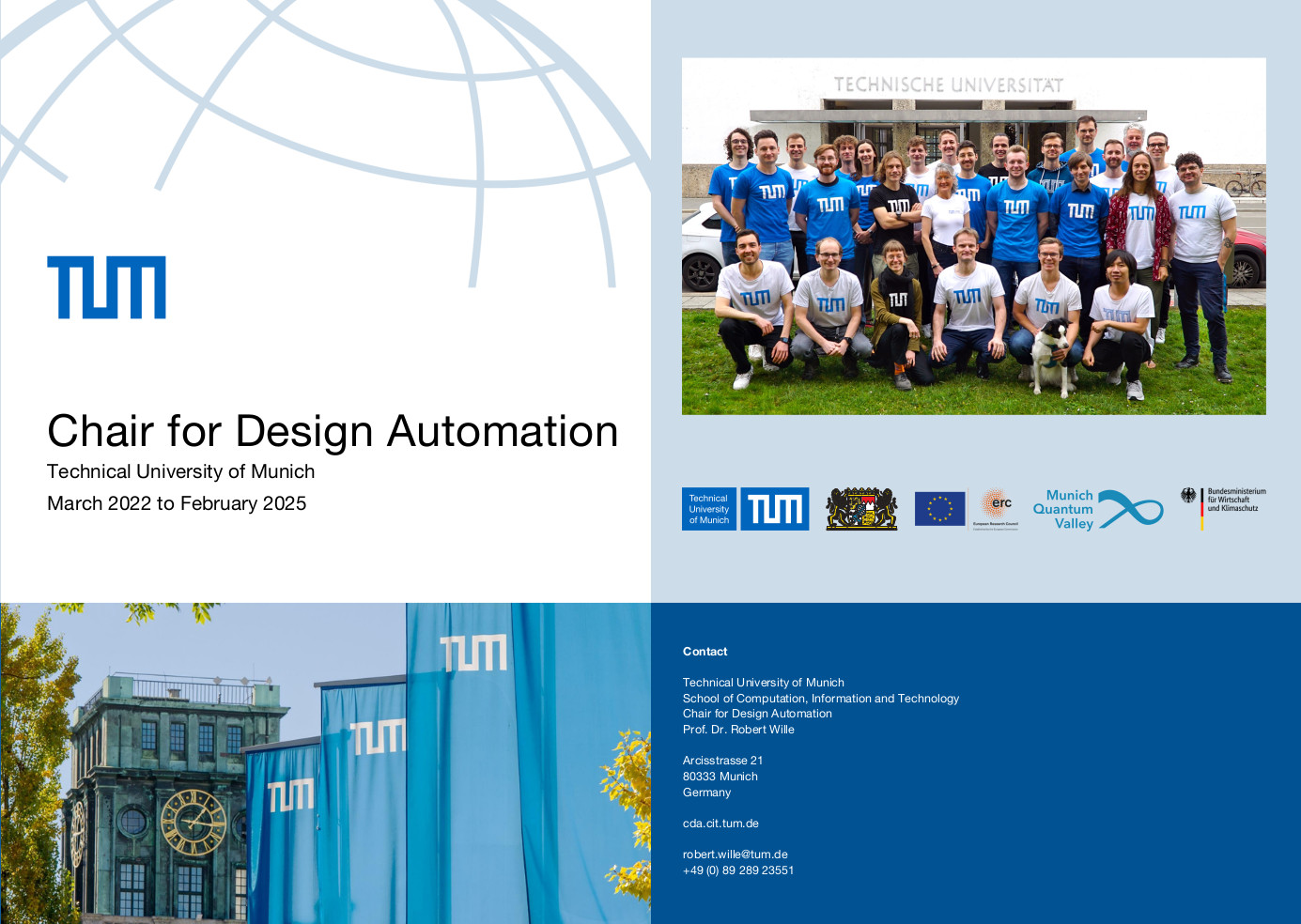
Call for Applications: Ph.D. Student for Logic Synthesis and Design Automation (m/f/d, full time E13)
We are an active and lively research group that is passionate about science. We are working in an environment that may best be characterized by the passion to accomplish something new—complemented by teamwork and fostering personal relationships. From assistants, students, researchers, and postdocs to professors; we are all working hand in hand, are highly committed, and engaged with our work. We know how to celebrate our successes, but also how to get through setbacks together!
In the coming months, we are going to extend our research group at the Technical University of Munich (www.cda.cit.tum.de). Accordingly, we are currently searching for a Ph.D. student to join our team on Logic Synthesis!
Our Research
In our group, we conduct scientific work on design automation for various technologies and develop algorithms and software tools dedicated to accelerate the research on multiple levels. We are working at the intersection of computer science, physics, and material science to push the limits of atom-scale manufacturing with corresponding design automation methodologies. Our research is mainly focused on (but not limited to) the following topics:
- Logic synthesis under technology constraints
- Placement & Routing for technology-independent layout generation
- Clocking and data synchronization
- Layout validation and verification
- Technology mapping and optimization
To learn more about the details of our previous work, please check out our website (www.cda.cit.tum.de/research/fcn/) and open-source implementation that is publicly available on GitHub (https://github.com/marcelwa/fiction).
Your Profile
We are looking for teamplayers who are willing to learn and explore new topics while advancing the scientific field. Your main task will be the development, conceptualization, and eventual implementation of new logic synthesis and design automation, simulation, and verification methods as well as software for emerging computing technologies. Our focus on interdisciplinary partnerships and networks will enable you to meet many interesting people (at places all over the world) and present your work at top-notch conferences and journals in our domain.
You should have completed your Master/Diploma studies with top grades in Computer Science, Artificial Intelligence, Mathematics, Electrical Engineering, or a similar subject. Most importantly, you should be creative, passionate about research, driven by curiosity, and be able to think outside-of-the-box. You will need strong coding skills, ideally in both modern C++ and Python, to design highly performant algorithms. Solid knowledge in the areas of logic synthesis, algorithmics, optimization problems, as well as experience with SAT/SMT solvers, ABC, Yosys, mockturtle, and similar tools is a big bonus.
Join our Team
While we are obviously interested in your CV and background (if applicable, please also add your list of publications, projects, cooperations, etc. as well as your GitHub profile). Most importantly, however, tell us what motivates you to join our team and work on emerging computing technologies. Let us know why you would be a great candidate! We are looking forward to hearing from you! Please send your application (in English or German) to Prof. Dr. Robert Wille (robert.wille@tum.de).
Severely disabled applicants will be given preference if they are essentially of the same suitability and qualifications. The Technical University of Munich aims to increase the proportion of women, so applications from women are expressly welcomed.
Note on data protection
As part of your application, you transmit personal data. Please note our data protection information in accordance with Article 13 of the General Data Protection Regulation (GDPR) on the collection and processing of personal data as part of your application (see https://portal.mytum.de/kompass/datenschutz/Bewerbung/). By submitting your application, you confirm that you have taken note of TUM's data protection information.



